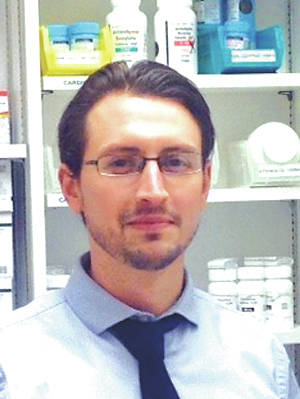
EDITOR’S NOTE: This column is the second of two parts by Justin Coby, executive director of Health Partners Free Clinic. The previous installment presented the case for health insurance.
The case for healthcare
Healthcare is an art and the artists are the practitioners who deliver that care. They are the experts whom we turn to in our time of need. When I get the opportunity to watch these artists in action as they deliver care here at Health Partners Free Clinic I am in awe. To me, they are wielding a brush and painting masterpieces with each patient interaction. If you know anything about artists, you know that they cannot be rushed.
Unfortunately, there are many residents in our community in need of that artwork. To add to this, the cost to facilitate such work must also be considered. These costs include buildings, utilities, medical supplies, access to medical references, and, of course, unless these artists are to starve, salaries. Note here, the word is starve not go without a third vacation home. Naturally, the business of modern healthcare has ballooned across the country and so have the costs. So far, the answer has been to utilize third-party payers (insurance) to cover costs, and, unlike any other business model, the recipient of the product rarely knows the true cost since that bill has been sent to the third-party.
I’m sure you, the reader, have experienced receiving an explanation of benefits letter from your insurance company after a visit to the doctor only to be nearly blown over by the price tag of this care. You continue reading and find that your insurance (in some cases) has covered all but 15 percent of these costs and the amount you must pay is much lower. A sigh of relief escapes your lips. If you are like the ten percent of residents in Miami County that are not fortunate enough to have affordable health insurance, then your sigh sounds more like a cry.
What you do not get to see is that the remaining 85 percent of the bill that your insurance company is responsible for is typically negotiated down to a price that is more “agreeable” to the third-party payer.
Make sense? No? Ok, well imagine going into your local McDonald’s for a cheeseburger. You order with the cashier who tells you that you owe 25 cents today for your cheeseburger and will receive the rest of your bill later this month. McDonald’s then sends a bill to your “cheeseburger” insurance for $1.75, but they say the burger is only worth $1.50 and will not negotiate further. McDonald’s accepts those terms and sends you a bill four weeks later for an additional 25 cents. Of course, that’s on top of the 5 dollars you pay every month to maintain good standing with the “cheeseburger” insurance company. All the while the burger artist in the back just wants to deliver the best doggone cheeseburger you ever had, and has no clue what it costs you.
Sound complicated? Well it has become just that complicated to deliver healthcare in our community. No wonder we lean so heavily on our health insurance when their negotiation leverage is so strong in the provision of our care. Have you ever had a doctor tell you that one particular medication or therapy would be most beneficial, only for her to follow that up with, “but your insurance doesn’t cover that, so we will try this instead.” “Instead!,” you think, “but I’m paying for that insurance.” I hear ya.
This model of healthcare has progressed over the years to a point where the health insurance companies now seem to have more control of our healthcare than we the individual and the practitioners that deliver the actual care.
In his book, “The Patient Will See You Now,” Dr. Eric Topol advocates for a future of democratized healthcare where the patient is given more tools and education to manage their disease states and practitioners take on a position of teacher and coach. Could you imagine? Could there sometime in the near future be a moment when you go to your doctor and suggest blood-work and therapies to manage or cure your disease state based on the proper education that she had provided you? A future where we could have more stake in our own healthcare. Well Topol thinks this will happen sooner than you think.
Health insurance versus healthcare
I have been fortunate enough to work in healthcare for nearly two decades. The past 10 years I have been able to provide care at a free clinic, five of which were as a volunteer. I can tell you that this last decade has been so fulfilling for many reasons. The Clinic has been solely supported for nearly twenty years now by the community through generous donations and we have been able to operate this mission in the community free of charge. I have seen, through my career, healthcare delivered in both models and I can honestly say when we let the healthcare practitioners practice medicine like artists they, truly, paint masterpieces. The Clinic has limitations and cannot be everything to everyone, but we deliver quality healthcare for folks managing those chronic disease states mentioned earlier. Due to the fact that we have to practice on an extremely tight budget, we are able to provide $5 in medical care for every $1 we spend. Due to this stewardship and our army of volunteers, we were able to provide over $1.9 million dollars in medical care last year alone.
Imagine a world where high quality healthcare can be provided for all regardless of health insurance. Imagine a world where you gained back control of your healthcare and the costs of that care. As Dr. Topol would say, it might happen sooner than you think.


